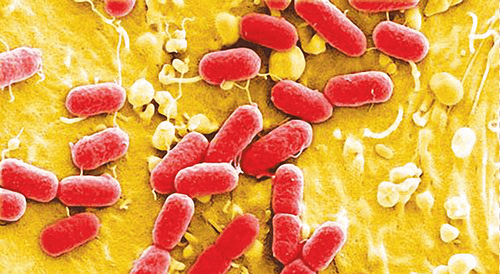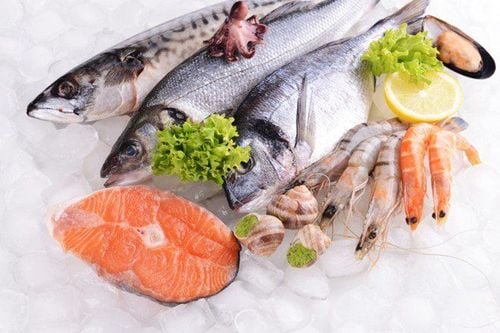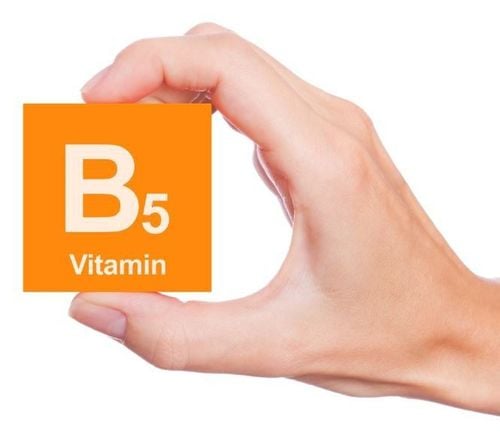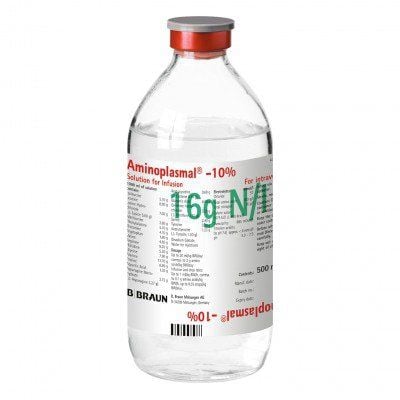This is an automatically translated article.
You can eat most fish while pregnant or breastfeeding. Eating fish is good for pregnant women and young children because it is a good source of many vitamins and minerals, as well as essential omega-3 fatty acids. But you should avoid eating certain types of fish and limit the amount you eat of others.
1. Is it good for pregnant women and young children to eat fish?
Fish has high quality protein, vitamins and minerals, and omega-3 fatty acids. Fish is also mostly low in saturated fat and some with vitamin D. Eating fish during pregnancy, while breastfeeding and during childhood can be especially important for a child's growth and development. Plus, there's evidence that eating fish can reduce your risk of cardiac death.
The complete package of nutrients that fish provide may be necessary to fully benefit fetal and infant development. For this reason, consumers who avoid fish and instead take omega-3 supplements may lose their full beneficial effects. Plus, they miss out on other nutrients in fish that support overall health.
Eating a variety of fish helps ensure that most fish you eat will be lower in mercury. In fact, most fish found in grocery stores are lower in mercury, including many common species like shrimp, salmon, canned tuna, tilapia, and skinfish. slippery and cod.

Cá là nguồn cung cấp dinh dưỡng tuyệt vời cho cả mẹ và bé
2. In fish with mercury, what will happen?
Fish absorb methylmercury (a form of mercury), and nearly all fish have traces of it. At high levels, methylmercury can be harmful and the developing fetus and young child may also be sensitive. Some women may even limit or avoid eating fish because of this concern.
Eating a variety of fish will help ensure that most fish you eat will be lower in mercury. However, some nutritionists recommend that women who may be pregnant, are either pregnant or breast-feeding. Young children, parents should avoid fish such as shark, swordfish, king fish with high methylmercury content, which affects the development of children. This advice should not affect your diet as these fish are not common in the market.
Also remember that most fish found in the grocery store are lower in mercury, and it is these fish that are beneficial to the health of you and your baby.

Trẻ nhỏ và thai nhi là những đối tượng dễ bị ảnh hưởng nhất bởi thủy ngân
3. How much fish should pregnant women and children eat?
Dietitians recommend that no more than 200 grams of fish per week (out of your weekly 240 to 300 grams) should be white tuna. Although canned tuna is lower in mercury. An easy way to follow this advice is to simply change the types of fish you eat, according to the overall recommendations.
Science shows that eating fish has direct health benefits, so it's important to include enough fish in your diet. To get the health and nutritional benefits of fish, follow the advice given by nutritionists and eat fish with less than 300 grams of mercury per week as part of a balanced eating plan. equal.
4. Fish should be limited during pregnancy
4.1. Tuna When you are pregnant or trying to get pregnant, you should limit your intake of tuna because it also contains high levels of mercury.
Don't eat more: 2 tuna steaks a week (about 140g each when cooked or 170g raw), or 4 cans of medium-sized tuna a week (about 140g a can when drained).
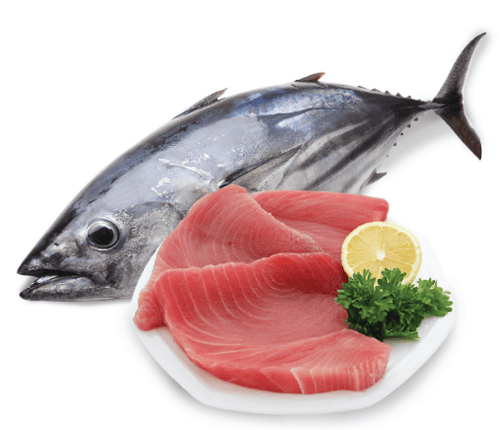
Mẹ bầu nên hạn chế ăn các món chế biến từ cá ngừ trong thai kỳ
4.2. Oily fish Pregnant women should also limit their intake of oily fish because it contains pollutants such as dioxins and polychlorinated biphenyls (PCBs). Do not eat more than 2 servings of oily fish per week.
You don't have to give up oily fish entirely, as the health benefits outweigh the risks as long as you don't eat more than the maximum recommended amount. Fish such as: Herring, mackerel, salmon, sardines are oily fish.
You should also limit your intake of certain other types of fish that are not considered oily. Research has shown that they can have similar levels of contamination as oily fish.
Any questions that need to be answered by a specialist doctor as well as customers wishing to be examined and treated at Vinmec International General Hospital, please register for an online examination on the Website for the best service.
Please dial HOTLINE for more information or register for an appointment HERE. Download MyVinmec app to make appointments faster and to manage your bookings easily.




